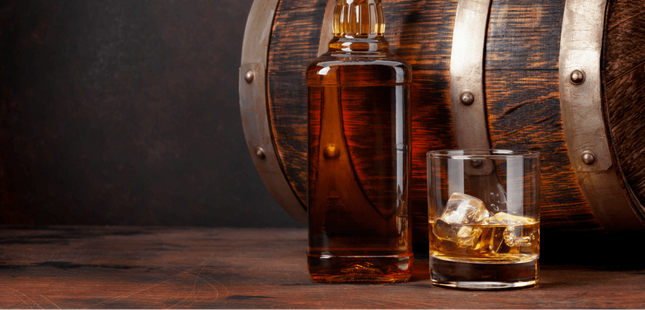SECURE WHISKEY STORAGE • NEXT DAY DELIVERY • ONE-TO-ONE SERVICE • ONLINE TASTING EVENTS

For centuries, whisky lovers have enjoyed the rich, smoky flavour that peat imparts to their favourite drams. But unfortunately, these pleasures come at a cost. Peatlands are non-renewable ecosystems that are seriously damaged by extraction. The overexploitation of peatland landscapes releases huge quantities of greenhouse gases into the atmosphere while leaving a devastating impact on the natural habits of rare species.
A public consultation set out by the British government reads:
"Peatlands are an iconic feature of our landscapes. They are the UK’s largest stores of carbon. They also provide vital ecosystem services, such as supplying over a quarter of the UK’s drinking water, decreasing flood risk, and providing food and shelter for rare wildlife. When peat is extracted, the carbon stored inside the bog is released as carbon dioxide, contributing to climate change.
Peat extraction also degrades the state of the peat mass, which threatens biodiversity and the efficacy of their ecosystem services across a larger area. Peat is extracted in the UK for primarily horticultural purposes, with bagged retail growing media accounting for 70% of the peat sold in the UK. It serves other purposes, such as its role in whisky production, but these types of uses represent only a very small proportion of the total use of peat."
When speaking to the latter part of this public consultation, with the whisky industry representing less than 1% of all peat extracted, the argument is that it’s already sustainable and exemption for whisky must be given due consideration.
As a consequence, the whisky industry is reexamining its extraction of peat. Whisky companies are collaborating with conservation NGOs and getting involved with conservation projects that restore peatland and alleviate some of the harmful consequences. The Scotch Whisky Association (SWA) is in the process of creating a new Peat Action Plan, which guides companies to become more sustainable.
A spokesperson for the SWA said: "For many producers, peat is an essential component of the whisky-making process, achieving a smoky character in some whiskies that are loved by millions of consumers around the world. The industry understands that care must be taken with peat extraction and is committed – in line with its latest sustainability strategy – to responsible peat use, including care in extraction, maximising efficiency of use and playing a role in restoration as part of our wider commitment to care for the land.
"We will respond formally to the consultation, but a blanket ban on peat extraction in Scotland would have a disproportionate impact on the Scotch Whisky producers and supply chain partners for the relatively small amount of peat used in the malting process of some Scotch Whiskies."
Responsible extraction is now becoming a priority for the industry, with the SWA committing to net-zero emissions by 2040.
When considering peat alternatives, the Whisky Advocate magazine says, "There is no alternative to peat; neither for whisky drinkers nor planet Earth. To that end, the whisky industry needs to ensure it’s using as little peat as possible and doing its part to safeguard and restore our world’s miracle ecosystem."







